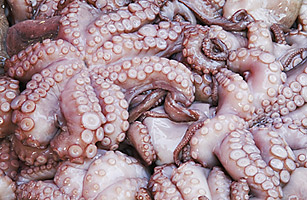
© Marcus Brandt/EPAHamburg, Germany: Large sheets of ice drift on the Binnenalster
The icy weather gripping northern Europe has disrupted flights at airports in the UK, France, the Irish Republic and the Netherlands.
Many flights were delayed or cancelled at Orly airport in Paris, Dublin airport and Amsterdam-Schiphol, as well as major UK airports.
A Eurostar train was stuck for about two hours in the Channel Tunnel on Thursday. It later reached the UK.
Four other Eurostar trains were cancelled, a company spokesman said.
Last month the Eurostar service was suspended for three days after several trains broke down in the tunnel. Powdery snow getting into the engines was identified as the cause.
In Germany, at least nine homeless men aged between 42 and 62 have frozen to death.
Many parts of Germany saw temperatures fall below -10C on Thursday, the Deutsche Welle news website reports.


Comment: Some 'experts' just can't admit they made wrong predictions: